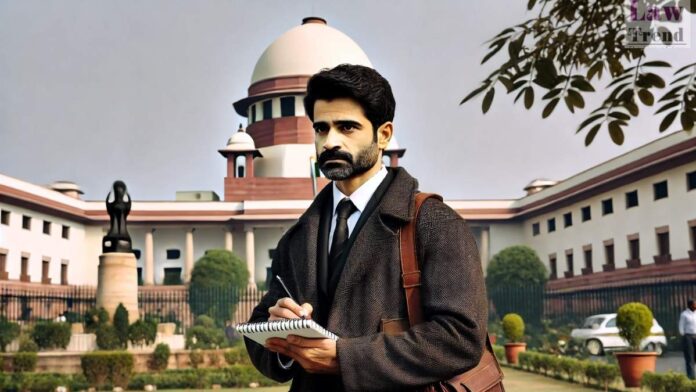The Supreme Court of India announced on Friday, November 29, that it will determine the permissibility of advocates working concurrently as journalists. This decision arises from a case involving Advocate Mohd. Kamran, who juggles roles as a freelance journalist and a practicing lawyer. The bench, consisting of Justice Abhay S Oka and Justice Augustine George Masih, is set to hear the case next month.
The issue came to light following a petition by Kamran challenging restrictions on advocates’ professional activities. “It was argued before us that it is permissible for a member of the bar to continue as a journalist. So, we will decide that issue,” stated Justice Oka. The legal community and journalists alike are keenly observing the proceedings, as the outcome could set a significant precedent.
The Bar Council of India (BCI), along with the Bar Council of Uttar Pradesh, had been directed earlier to investigate the matter, particularly focusing on Kamran’s simultaneous practice as an advocate and a journalist. During today’s proceedings, the BCI’s counsel requested an additional two weeks to file an affidavit concerning Kamran’s professional engagements.
In a recent turn of events, Kamran submitted an affidavit declaring his decision to solely continue his legal practice, which the Court has officially recorded. The case has been scheduled for a detailed hearing on December 16, 2024.
Background checks into Kamran’s career reveal an ongoing battle involving a defamation claim against former BJP MP Brij Bhushan Sharan Singh, who Kamran asserts has accused him of criminal activities in confidential letters to Uttar Pradesh Chief Minister Yogi Adityanath. The Supreme Court had previously questioned Kamran’s dual roles in July, referencing the BCI Rules on Professional Conduct and Etiquette, which generally prohibit such dual professions.
Kamran defended his dual capacity, citing Chapter II, Section 51 of the BCI Rules, which allows advocates to partake in activities like journalism, lecturing, and teaching under specific conditions. He emphasized his freelance status, denying any full-time employment or salary from media entities.




